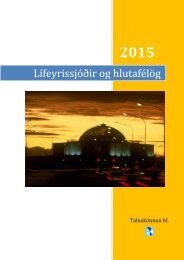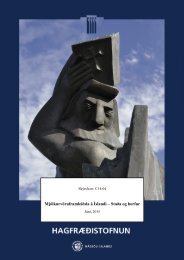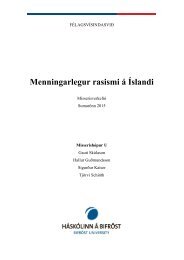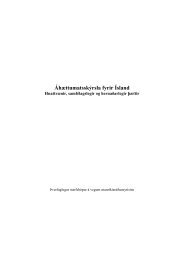Create successful ePaper yourself
Turn your PDF publications into a flip-book with our unique Google optimized e-Paper software.
WORLD REPORT 2016<br />
HUMAN RIGHTS WATCH<br />
The absence of transparent criteria for using federal funds, and in some<br />
provinces state funds, to purchase media advertisements creates a risk of discrimination<br />
against media that criticize government officials or policies. The<br />
Supreme Court has repeatedly ruled that while media companies have no inherent<br />
right to receive public advertising contracts, government officials may not<br />
apply discriminatory criteria when deciding where to place advertisements.<br />
Argentina lacks a national law ensuring public access to information held by government<br />
bodies at all levels. A presidential decree ensuring access to information<br />
issued in 2003 applies only to the federal executive branch, though some<br />
provincial and local governments have adopted regulations for their jurisdictions.<br />
The public’s access to information about the function of local, provincial,<br />
and national government remains piecemeal and haphazard.<br />
In 2009, Congress approved a law that included provisions to increase plurality<br />
in the media, and four years later the Supreme Court established parameters regarding<br />
how the law should be implemented to protect free expression, including<br />
that a diverse range of perspectives should be heard in state-run media<br />
programming. So far, the federal agency in charge of implementing the law has<br />
not successfully addressed the overwhelmingly pro-government editorial line of<br />
state-run media. In 2014, the agency unilaterally tried to limit the number of<br />
broadcasting outlets owned by the Clarin Group, the biggest private media group<br />
in Argentina. The Clarin Group challenged the government’s proposal, and the<br />
case remains pending before the courts.<br />
Police Abuse<br />
Police abuse remains a serious problem. Security forces ocassionally employ excessive<br />
force against protesters, despite a 2011 commitment by authorities in at<br />
least 19 of Argentina’s 23 provinces to ensure that force would be used proportionately.<br />
In August 2015, dozens of protesters were injured when local police<br />
dispersed a largely peaceful demonstration in the province of Tucumán by firing<br />
rubber bullets and beating protesters with batons.<br />
In May, a policeman in Buenos Aires province was convicted of torturing Luciano<br />
Arruga, a teenager who was arbitrarily detained in 2008 and whose whereabouts<br />
remained unknown until 2014, when his body was found buried in a cemetery in<br />
Buenos Aires.<br />
Prison Conditions<br />
Overcrowding, ill-treatment by guards, inadequate facilities, and inmate violence<br />
continue to be serious problems in Argentina’s prisons. The National Penitentiary<br />
Office, an official body created by Congress, reported 33 deaths, including<br />
17 violent ones, in federal prisons between January and September 2015. The office<br />
also documented 796 cases of torture or ill-treatment in federal prisons in<br />
2014, and 241 cases between January and April 2015. In June 2015, a federal<br />
court convicted four officers of the Federal Penitentiary Service for their participation<br />
in the torture of a detainee in 2011.<br />
Indigenous Rights<br />
Indigenous people in Argentina face obstacles in accessing justice, land, education,<br />
healthcare, and basic services. Argentina lacks a law to protect indigenous<br />
peoples’ right to free, prior, and informed consent when the government adopts<br />
decisions that may affect their rights.<br />
A 2006 law that requires the government to survey land occupied by indigenous<br />
communities is being implemented slowly. Communities are reportedly being<br />
evicted from their lands even though the law, as amended, suspends evictions<br />
until 2017.<br />
Women’s Rights<br />
Abortion is illegal in Argentina, except in cases of rape or when the life of the<br />
woman is at risk. But even in such cases, women and girls face numerous obstacles<br />
to obtaining an abortion. They also have trouble accessing reproductive<br />
services such as contraception and voluntary sterilization. These barriers mean<br />
that women and girls may face unwanted or life-threatening pregnancies and<br />
that they are subject to criminal prosecution for seeking abortions.<br />
In a landmark ruling in March 2012, the Supreme Court determined that prior judicial<br />
authorization was unnecessary for abortion after rape, and urged provincial<br />
governments to ensure access to legal abortions. The Association of Civil<br />
Rights found that as of March 2015, more than half of Argentina’s 23 provinces<br />
still had not adopted protocols that met the court’s requirements.<br />
74<br />
75










